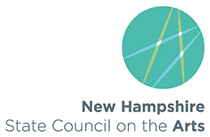Featured Poet: William Doreski, Peterborough
 William Doreski, Professor of English, Keene State College (New Hampshire) teaches creative writing, literary theory, and modern poetry. Born in Connecticut, he lived in Boston, Cambridge, and Arlington, MA for many years, attended various colleges, and received a Ph.D. from Boston University. After teaching at Goddard, Harvard, and Emerson colleges, he came to Keene State in 1982. He has published several collections of poetry, most recently Another Ice Age (Cedar Hill, 2006), and Waiting for the Angel (Pygmy Forest Press, 2009), and three critical studies The Years of Our Friendship: Robert Lowell and Allen Tate (University Press of Mississippi, 1990), and The Modern Voice in American Poetry (University Press of Florida, 1995), Robert Lowell Shifting Colors (Ohio University Press, 1999) -- and a textbook entitled How to Read and Interpret Poetry (Prentice-Hall). William Doreski, Professor of English, Keene State College (New Hampshire) teaches creative writing, literary theory, and modern poetry. Born in Connecticut, he lived in Boston, Cambridge, and Arlington, MA for many years, attended various colleges, and received a Ph.D. from Boston University. After teaching at Goddard, Harvard, and Emerson colleges, he came to Keene State in 1982. He has published several collections of poetry, most recently Another Ice Age (Cedar Hill, 2006), and Waiting for the Angel (Pygmy Forest Press, 2009), and three critical studies The Years of Our Friendship: Robert Lowell and Allen Tate (University Press of Mississippi, 1990), and The Modern Voice in American Poetry (University Press of Florida, 1995), Robert Lowell Shifting Colors (Ohio University Press, 1999) -- and a textbook entitled How to Read and Interpret Poetry (Prentice-Hall).
His critical essays, poetry, fiction, and reviews have appeared in many academic and literary journals, including Massachusetts Review, Notre Dame Review, The Alembic, New England Quarterly, Harvard Review, Modern Philology, Antioch Review, Yale Review, African American Review, and Natural Bridge.
Portrait of Hart Crane
Not only the open white shirt,
the undershirt collar showing,
but the crude texture of the face,
the boxer’s nose swollen like
a drunkard’s, the pores wide open
like portholes of the Orizaba,
from which he’d jump two years later.
Maybe for this one photograph
Evans used orthochromatic film.
Maybe exhausted by phone calls
from sloshed or overwrought Crane,
Evans decided to impale
instead of portray him. But really
it’s the expression, the head turned
to his right, the eyes half-lidded,
the carved mouth carefully neutral.
Was Crane looking to someone else
for a cue? Or tired of facing
himself straight inside the lens?
No one has ever explained
these portrait sessions, but something
is brewing in that gaze: hurricane
below the horizon, “Sky-seethe,
dense heaven dashing;” or maybe
only that simple-minded drowning
that leaves the Atlantic quivering
after a sudden slack of tension
no one expects to survive.
A photograph of Hart Crane taken in 1930 by Walker Evans hangs above my desk. Crane is important to me not only because of the efficacy of his work but because the first published poet I ever met introduced me to Crane’s poetry and gave me the old Collected Poems, edited by Brom Weber. This was my first book of modern poetry. Both Crane’s work and life are exceptional and haunting. His death by water rebukes Eliot’s abstraction in The Waste Land (section IV). It still lingers, as does Walker Evans’ stark black and white America. The harsh enjambments and terse accentual rhythms of my poetry derive from Crane. I could never catch his immense compression, or the devious echolocation of his attenuated imagery, but I can at least quote it.
For more information about William Doreski visit:
|

